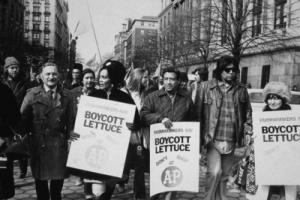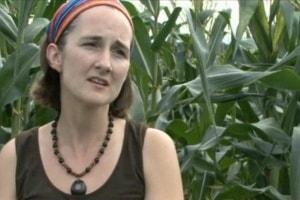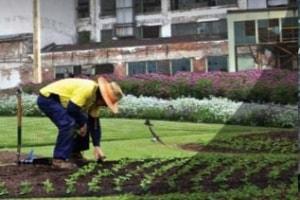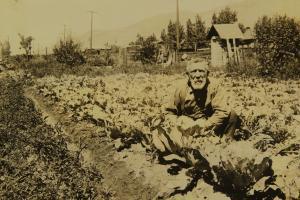
Food Studies Online is a first-of-its-kind database, bringing together rare and hard-to-find archival content with visual ephemera, text, and video. Food studies is a relatively new field of study, and its importance is felt in many major disciplines. It has social, historical, economic, cultural, religious, and political implications that reach far beyond what is consumed at the dinner table.
Who will use it?
Food studies is interdisciplinary, but is of primary interest to social scientists and students of policy and business. Key themes and disciplines with extensive coverage represented include:
Content Types: brochures and advertisements, cookbooks, documentaries, ephemera, government/institutional documents, interviews, letters, menus, oral histories, pamphlets, periodicals, photographs, posters, recipes, videos, and more.
Topics and Key Word Searches: agricultural policy, cooking, dairy products, emergency management, farming, food industry, food preservation, food rations, food safety, gardening, gastronomy, government programs, grains, harvesting, international trade, livestock, marketing and advertising, meats and poultry, nutrition, public health, recipes, restaurants, sustainable agriculture, trade and commerce, wartime economy, and more.

For over one-hundred years progressively minded individuals have striven to make improvements to the food system, with hopes of improving the health of society and the planet. It is becoming more critical for urban studies, sociology, and anthropology departments to teach students about contemporary and historical food movements. From the vegetarian movement led by John Kellogg at the turn of the century, to the slow food movement of today, food movements have played a pivotal role in the foods we eat. Ubiquitous among food activists today is the idea that food grown and purchased locally is overall better for consumer health and the health of the environment. Activists such as Joel Salatin, a farmer and local food evangelist featured in the book Food, Inc., decry the modernization of food and urge people to learn how to cook, buy local, buy in season and plant a garden.

A collection of books, videos, and periodicals related to the rise of GMOs in our modern food system and the actions farmers and the governments are taking to ensure that agricultural practices are safe for consumers today and in the future.

Food Systems encompass all of the infrastructure and processes our food goes through and are an important element of food studies. Food systems includes growing, harvesting, processing, packaging, transporting, marketing, consumption and disposal. Many scholars in the 21st century have turned to food systems in order to determine how we can solve some of the major food related problems of our time, including hunger, malnutrition, food injustice, and environmental degradation Dr. Oran Hesterman in his book Fair Food said, “When a system we depend on to meet essential needs isn’t working, the consequences are enormous. The food system that evolved to bring us abundant food at low cost has grown out of control, nourishing us by destroying some of what we hold most precious: our environment, our health, and our future.”

As the earth’s population grows to 9 billion people, the amount of resources needed to produce enough food continues to rise. With food production taking over an estimated 50% of the earth’s surface, it’s necessary to question the sustainability of the food production and consumption practices worldwide. What can governments, corporations and farmers do to ensure that earth’s resources will continue to support food production in the future? As climate change impacts the resilience of subsistence farmers, what can be done to increase food security while decreasing environmental impact? It’s important to study environmental issues and food systems holistically as we try to answer these questions.

Explore the evolution of diets through the ages. This collection of diet books and cook books gives insight into historical diet fads and trends in healthy living, from the 19th and 20th centuries.

A series of 29 hours of primary source interviews and lectures with owners of small farms and entrepreneurs from the Northeastern United States. They discuss the business of food, from starting and maintaining small farms, creating new products, marketing, and distribution. Highlights include interviews with Hamdi Ulukaya the creater of Chobani, the makers of Stonyfield yogurt, and Dianne Eggert, the executive director of the Farmer's Market Federation of New York.

A collection of 300+ historical photographs from the United States National Archives and Records Administration. Subjects include farming, women farmers during wartime, rationing, food preservation, and worldwide farming practices.

With this free service, you can search through over 23,000 menus available online through the the New York Public Library and Los Angeles Public Library websites.

National Archives - WWII Food Campaign Files, 1941-1948 - Documents, pamphlets and posters from the government’s food campaigns during WWII, including the rationing campaign "No Point-Low Point," Food Fight for Freedom Campaign, Fat Salvage Campaign and Victory Garden Campaign. Documents. Full color posters show how campaigns were advertised. Includes packets of instructional materials for housewives who want to hold their own cottage meetings on conserving food during the war.

National Archives - Records related to the school lunch program 1940-1973 - Government documents related to the US school lunch program in the mid-20th century. Documents include recipes used in school cafeterias, pamphlets about ending hunger in schools, and educational pamphlets on how to create healthful school lunches. Also includes factbooks with statistics of the national school lunch program in the 1950s.
Alexander Street is the only place to find the complete digitized run of The Cheese Reporter, a trade magazine from Wisconsin that has been publishing about the dairy industry since 1928. Issues cover news and national trends in food safety, pricing, pasteurization, food policy, and agriculture. This publication offers a historical perspective of industry in America and was previously only available in full at the Wisconsin Historical Society.
Over 5,000 pages of ephemeral materials from the turn of the century through the 1960s. The collection is made up of educational pamphlets from food production companies as well as food labels, food advertisements, and recipe books. Brands include Jello, Quaker Oats, Libby, Kellogg, and more. These materials give insight into the history of food and gender roles, foodways, food trends, food geography, and food and race.